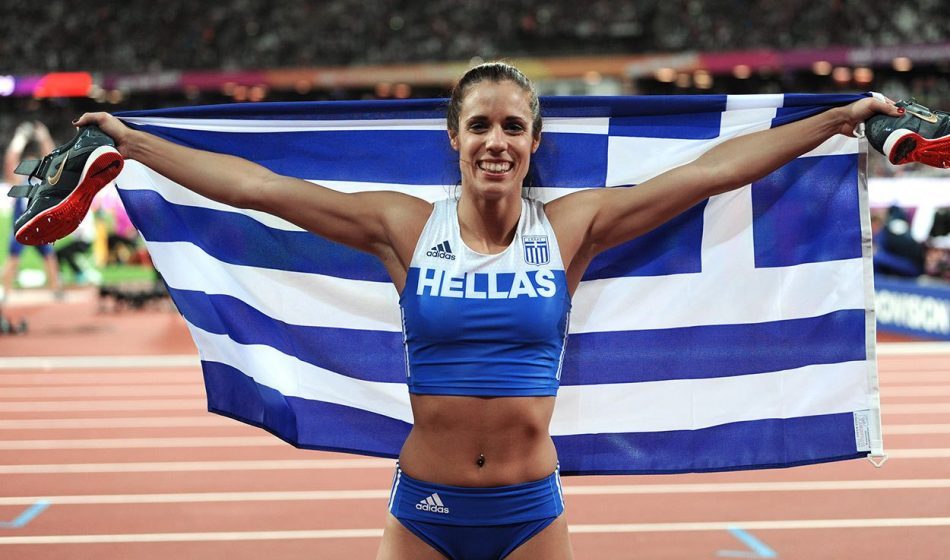Olympic pole vault champion Katerina Stefanidi arrived in Greece on the first of March, facing the unprecedented challenge of having no access to any training stadiums, prior to her participation in the biggest competition of her career.
Stefanidi had planned a trip to Greece to visit family, put in a month-long training cycle and take part in the Olympic Torch Relay on Thursday before planning to return to her base near Cleveland, Ohio. As you can probably guess, however, those plans did not go accordingly.
The Olympic journey commenced last week as the the torch was lit in Olympia to empty crowds. The torch relay, however, was cancelled as it passed through Sparta because of the “unexpectedly large crowd” that gathered to watch, despite repeated requests for the public to stay away to prevent the spread of the coronavirus.
Adding to her disappointment of not taking part in the Olympic relay, Greece announced last Wednesday all stadiums were closed, giving her no place to practice prior to the Olympics.

Making matters even worse, it is reported that her poles remain stuck in quarantine on the other side of the Atlantic.
Read More: Olympic torch relay in Greece suspended as it passes through Sparta
“We have trained on the beach and the street and we are lucky to have one bar at home to do some modified lifting,” she says speaking with World Athletics.
“But obviously we cannot pole vault at home or the beach or the street. More and more things are closing down every day here like in most countries of course, and it’s honestly becoming harder to worry about training or the Olympics with what is going on in the world around us.”
As much of an inconvenience as those modified and rudimentary training facilities are, they’re secondary to a larger issue that all athletes are grappling with at the moment, said Stefanidi’s husband and coach, Mitch Krier.
“I think the biggest issue is not even the disruption in current training with closed stadiums, but rather the uncertainty if meets will occur on the same dates, or postponed, if at all.”
“Meets serve as an important training measure and building block,” Krier said. With the coronavirus epidemic causing unpredictable changes to facility access and competition dates, it makes it difficult for competitors such as Stefanidi to program their training.
Katerina: The IOC is putting us at risk
Katerina Stefanidi discussed her disappointment at the International Olympic Committee (IOC) on Tuesday with Reuters, as the committee tell athletes to continue training.
“There is no postponement, no cancellation. But it (the IOC) is putting us at risk,” the Greek said in an exclusive interview.
“We all want Tokyo to happen but what is the Plan B if it does not happen? Knowing about a possible option has a major effect on my training because I may be taking risks now that I would not take if I knew there was also the possibility of a Plan B,” Stefanidi added.
“We have to decide whether to risk our health and continue training in the current environment.”
“The IOC advice ‘encourages athletes to continue to prepare for the Olympic Games as best they can’ with the Olympics only four months away, but the government legislation is enforcing isolation at home with tracks, gyms and public spaces closed,” she wrote on Twitter.
“I feel under pressure to train and keep the same routine which is impossible.”
The IOC will hold a call with its National Olympic Committees on Wednesday, and had earlier in the day repeated its commitment to stage the Games in the Japanese capital from 24 July to 9 August, urging athletes to continue with their training despite mounting speculation about the impact of the virus on the Games.
